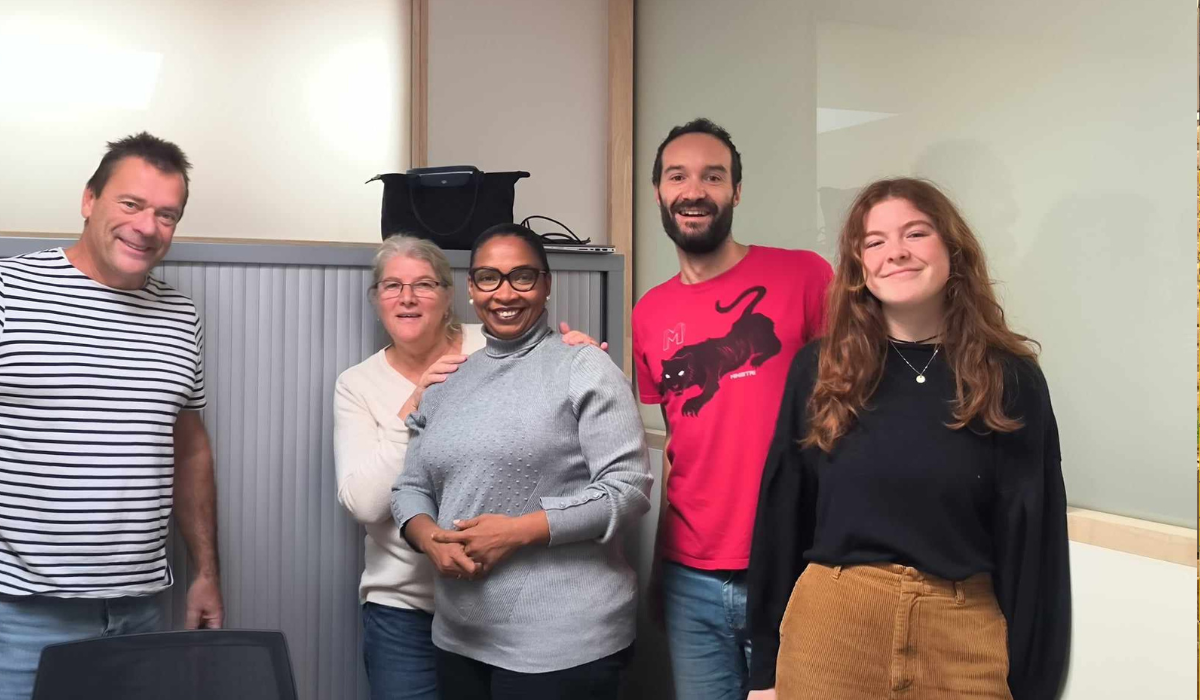Path of a reflexive practitioner: a crossed look – Marie Claire Lavater
The path of a reflexive practitioner: a cross look DROM (France)[1] RUP (Europe)[2] DFA (America)[3]
To begin, I will wear a nuance because the «reflexive practitioner» according to Schön[4] transforms into a reflexive practitioner according to my Being. In this sense, it is as a woman, mother, PhD student, professional and citizen of the world that I integrate a notion of diversity in the term of reflective practitioner.
To understand, Schön constructs practice in an interactive process between institutionalized theory and field experience that integrates reflection in and about action. That is, the action of the practitioner is in a learning process throughout his practice[5] . In addition, it integrates the quest for unexplored knowledge in the practitioner to allow him to respond to a significant need on the ground[6] .
In other words, I am WOMAN, Woman of science, Woman of a religiously politicized binary system where white is not white and black is not black in colorism.
I AM a reflexive practitioner who explores the universe of epistemicide[7]. As such, it is about understanding knowledge from North to South through East and West in my reflections and analyses on the issues of youth.
My current approach is part of my doctoral career in connection with my professional experiences in the field of early intervention with young people. For about twenty years, I conducted reflections with key players, during the meetings of Dynamo International but also interregional (Martinique, Guadeloupe and Guyana).
To talk about key players, Dynamo International which is located in Belgium regularly brings together IN-OUT social workers (in the walls and on the street), the policies, the so-called target audiences of the different continents but also of the OR territories in order to reflect on the problems of various populations in street situations.
The federating meetings of Dynamo International allowed me to understand the complexity of the directives of the French government, in street work. This complexity pushes the professional to adopt a posture of intervenor in marronage[8].
How do the paradoxes of discourse impact intervention?
The multi-annual «Pé la» (Creole: Tais-toi) in the institutional directives led me to listen to the waves of the indigo ocean, which drowns the territorial continuity of the whole of France with its drom. It is also this ocean that offers alternatives of action in the opportunities of the ORs for Martinique within Europe with an oversight for the DFA in the Americas.
How to apply early intervention to young people throughout France?
The street and its secrets proudly kept in intergenerational knowledge are revealed only to empathy and kindness, in the knowledge of respect for the verbal and non-verbal codes of each territory. However, the growing migratory phenomenon tends to decolonize knowledge, in the miscegenation of little-known history.
Thus, the chasm of the forgotten angles of science throughout history can identify the gaps in so-called best or best practices that originate in evidence, in the interpretation of statistical results.
Does the street disclose all its data to the institution?
Is the institution listening to real street data to improve its practices?
To answer one or the other of these questions, it is necessary to penetrate each of the universes to explore the forgetfulness of history in science but also to dissect these repetitive asterisks of scientific research like Matriochkas which are preserved in time.
Finally, it will be on the rhythm of a Mazurka from Martinique, with all these variations of musical notes that social workers from here and elsewhere will understand that silence, in the diversity of knowledge, can impact the so-called effective intervention. It loses its meaning in the understanding of the Other who begins with Self.
Marie-Claire LAVATER
Founding member of Dynamo International
[1] Overseas departments and regions
[2] Outermost region
[3] French Department of America
[4] “Donald Alan Schön (1930-1997) was trained as a philosopher, but he cared about developing thoughtful practices and learning systems within organizations and communities.” URL extract: https://infed.org/mobi/donald-schon-learning-reflection-foreign exchange/
[5] Schön. D., A. (1994). The reflexive practitioner. In search of hidden knowledge in professional action. Trad. Jacques Heyneman & Dolorès Gagnon. Montreal: Les Éditions Logiques. 418p.
[6] Ibid
[7] “Strange peoples were eliminated because they also had strange forms of knowledge and these strange forms of knowledge were eliminated because they were based on strange social practices and peoples. But epistemicide has been much more widespread than genocide because it has always claimed to subordinate, subordinate, marginalize or illegalize practices and social groups that could pose a threat to capitalist expansion, or during a good part of our century for communist expansion (on this point as modern as capitalism), and also because it happened as well in the peripheral and extra-North American space of the world system as in the central European and northern space-American, against workers, natives, blacks, women and minorities in general (ethnic, religious, sexual).
The new paradigm sees epistemicide as one of the great crimes against humanity.”
Boaventura de Sousa Santos quoted on URL https://www.antiatlas.net/antiatlas-des-epistemicides/
[8] Who practices a profession illegally or in irregular conditions Consulted on URL https://www.cnrtl.fr/definition/marronnage

